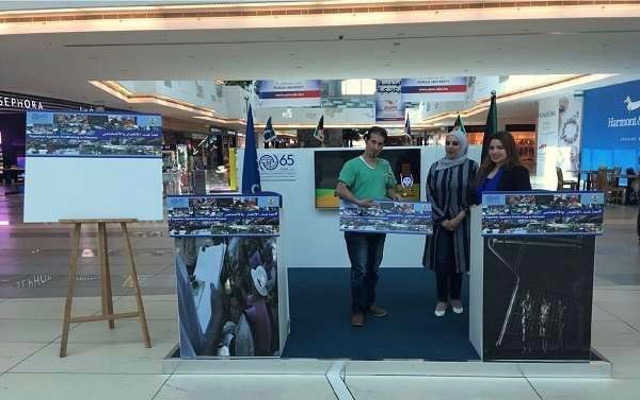The International Organization for Migration (IOM) recently launched a new campaign in Kuwait in the hopes of combatting and raising awareness about human trafficking. The campaign is titled “Together Against Trafficking in Persons” and is accompanied by the hashtag #TogetherAgainstTrafficking. The individual events are held under the auspices of Deputy Prime Minister and Minister of Interior Sheikh Mohammed Khaled Al-Hamad Al-Sabah and will take place in four malls around the country.
The entire campaign will last less than one month; it was launched on 8 June and will conclude 5 July. During this time, IOM staff will be available to answer public questions regarding human trafficking. The IOM and Kuwait’s Ministry of Interior have also created four pamphlets that they will distribute throughout the month.
This recent effort is the second campaign the IOM has introduced in Kuwait. Under the auspices of Sheikh Salman Sabah Al-Salem Al-Sabah, Minister of Information and Minister of State for Youth Affairs, the IOM began its first awareness campaign in September 2015. Like the latest campaign, the first took place in malls and had a short timespan.
The timing of “Together Against Trafficking in Persons” is apt. In March, a former Kuwaiti ambassador to Zimbabwe was charged with trafficking 200 women into abusive situations in Kuwait. Recent reports this month also show an increased prevalence of infant trafficking in the country. Media have also been recently reporting heavily on several Malawi girls who were stranded in the Gulf country. They were trafficked to Kuwait and had their passports revoked while working for abusive employers.
Both of these campaigns are meant to raise awareness that human trafficking, especially the trafficking of migrant workers, is a growing and pertinent problem in Kuwait. According to the IOM, “many citizens and expatriates in Kuwait are unaware that there are migrants in Kuwait trafficked into forced domestic and sexual labour.” Over 90% of Kuwaiti households have at least one migrant domestic worker. Employer abuse against domestic workers has led many nations, especially those in Africa, to ban domestic workers from receiving visas to Kuwait. These countries include: Sierra Leone, Nepal, Indonesia, Ethiopia, and Malawi.
Human trafficking is still widespread in Kuwait and its citizens remain largely unaware of the abuses happening in their country despite ongoing media coverage. It does not seem as though the “Together Against Trafficking in Persons” events are going to make much more of an impact than the first campaign. Kuwait needs to commit to more long term and widespread reforms and anti-trafficking campaigns that disseminate information through multiple channels. The international community, comprised of both states and organizations, must push Kuwait to take these steps and must support the Kuwaiti government in its efforts. The well-beings and lives of thousands of migrant workers and trafficking victims are on the line.
Brittany Hamzy is an Advocacy Fellow at ADHRB.





